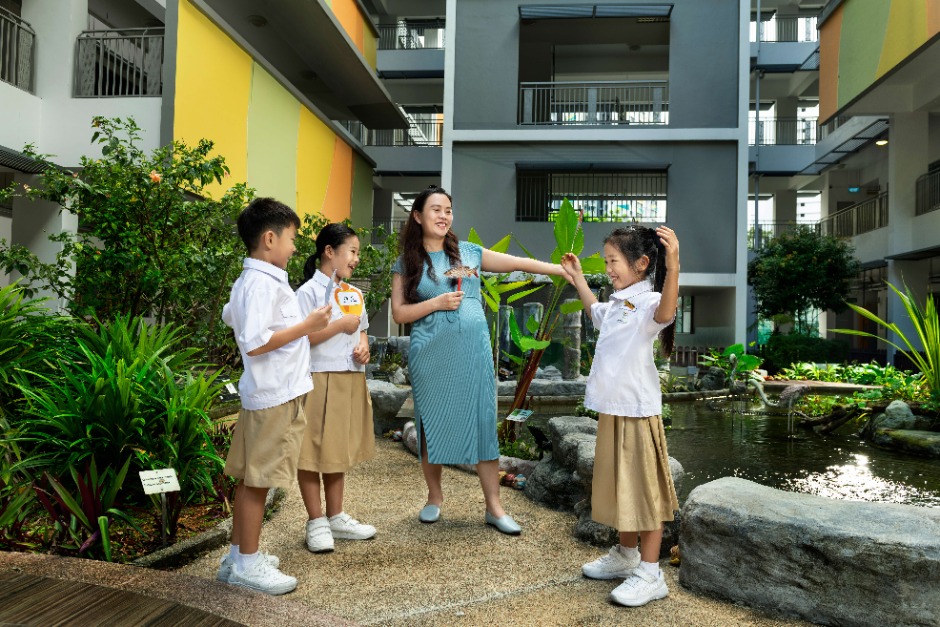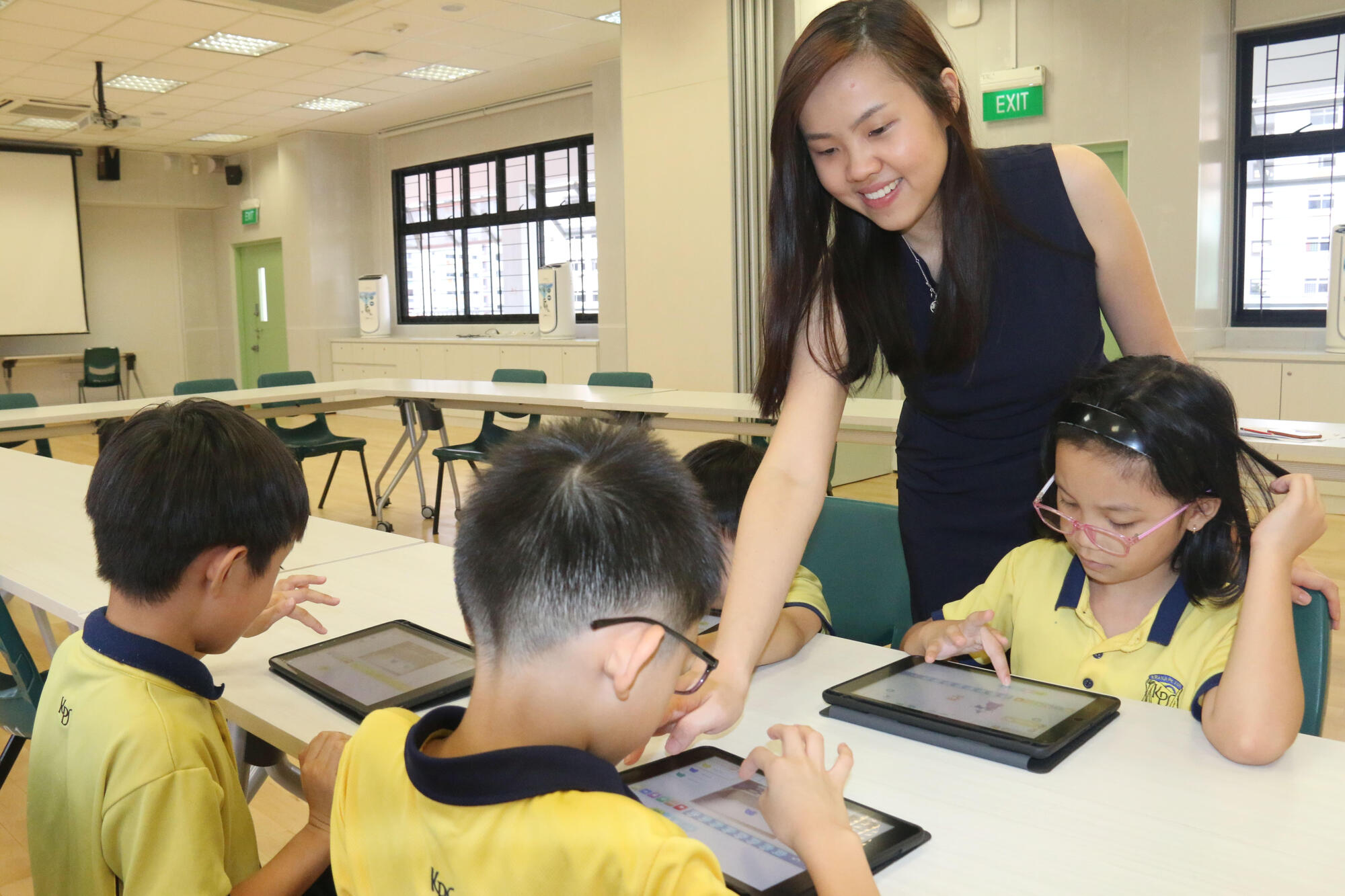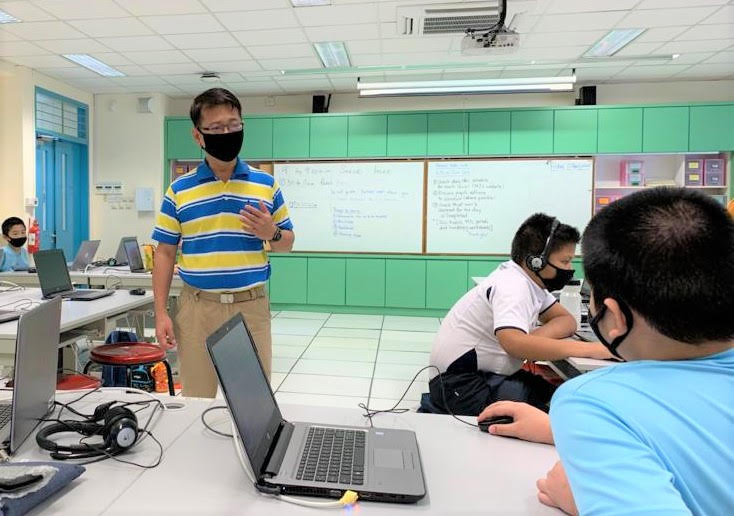What inspires you to teach?
Reflecting on my days as a primary school student, I was lucky to have a Chinese Language teacher who inspired me to strive harder. Whenever she caught sight of positive behaviour or an accomplishment no matter how small, she would exclaim, “Let’s celebrate with resounding claps of awesomeness!”
One day she declared, “We have a standout performer among us today, and I’ve made copies of her work for everyone to appreciate.” I glanced around, little did I anticipate that my name would be called. I rose from my seat, and the entire class cheered. That single moment of acknowledgement validated my efforts.
Through her, I gleaned that teaching is more than just imparting knowledge. It is about building relationships with students and helping one another grow and learn.
One of my most memorable experiences doing just that was with my very first Primary 6 class.
“’Cher, I don’t know lah!” was the most common response I received whenever I asked them a question. I quickly realised that the students were demoralised due to years of struggling to do well in Mandarin.
To disrupt this pattern, I held remedial classes after school. However, I noticed that one of them would often be absent. Despite my efforts to issue reminders every day, she still did not show up.
“Through her, I gleaned that teaching is more than just imparting knowledge. It is about building relationships with students and helping one another grow and learn.”
I sensed that there was an underlying issue. On a particular day, she arrived only after the rest of the class had been dismissed. I asked her, “How are you feeling? Is something bothering you?” She remained silent. Eventually, I asked, “Are you afraid of oral exams? Is it because you feel hesitant to speak up?” After a moment of contemplation, she finally nodded her head.
“I have complete faith in you. Do not give up on yourself when I haven’t. We’ll face this challenge together,” I reassured her.
Guiding her through various types of questions and topics, I observed her progression from silence to echoing my words, and eventually, expressing her own thoughts. Each time I cheered her on by saying, “You see? You said it! You did it!” She started to be more confident and even found the courage to speak up during her oral assessment.
Describe a teaching approach you have found effective.
It is important to make learning Mandarin fun and relatable for students. If they do not see the point in what they are learning, they will never be interested. That is why I came up with the Kopitiam Experience and Explorer Experience.
In the Kopitiam Experience, I guide my Primary 1 students to the canteen, where they engage in role-playing as customers at a local coffeeshop.
The students choose their food, make payments with play money, and place orders in Mandarin. When they encounter unfamiliar food names not covered in their textbooks, they approach me for help. One parent shared that their child had started confidently ordering food and drinks in Mandarin at their nearby coffeeshop, highlighting the practicality of language skills beyond the classroom.
“The sight of students actively supporting one another to complete the assigned tasks, whether by helping with pronunciation or recalling vocabulary, fills me with pride.”
During the Explorer Experience, students embrace the role of explorers. They embark on a series of observational quests in the school’s garden that is adorned with colorful laminated word cards, toy insects and animals nestled in trees.
The sight of students actively supporting one another to complete the assigned tasks, whether by helping with pronunciation or recalling vocabulary, fills me with pride. This collaborative learning experience helps them to feel more comfortable practicing Mandarin.
Following the experience, the students are often excited to share their newfound knowledge about animal and insect behaviour with their parents and classmates. Their expressed joy is evidence of the success of play-based activities in fostering a desire to learn the language.

Which school initiative are you especially proud of?
As the Chairperson of the School’s Staff Welfare Committee (SWC), my motivation is to create a positive work environment that encourages teachers to be invested. Although some may argue that the SWC has nothing to do with teaching or the students, we believe that happy teachers lead to happy students.
We implemented various initiatives that involved different departments in our school. These initiatives included cultural art forms like calligraphy, eco-friendly life hacks, exercise and meditation sessions, and raising awareness about holistic health.
“Ultimately, taking care of the mental wellness of teachers benefits the students as well.”
Ultimately, taking care of the mental wellness of teachers benefits the students as well. By creating a supportive and positive work environment, we are helping create a school culture that values both our students’ emotional and academic growth.
My father, who did not receive the same support I did as a student, reminds me that education is about more than just learning useful skills. It is also about shaping how we develop, guide, mediate, and mend relationships. He would often say, “As a teacher, you should have a giving heart, similar to that of a social worker or a philanthropist.” One of our key projects was the Teachers’ Day event where students created heartfelt gifts, such as origami bouquets, for their teachers. Through this experience, students learnt to express gratitude and appreciation within their means – through actions and words.






